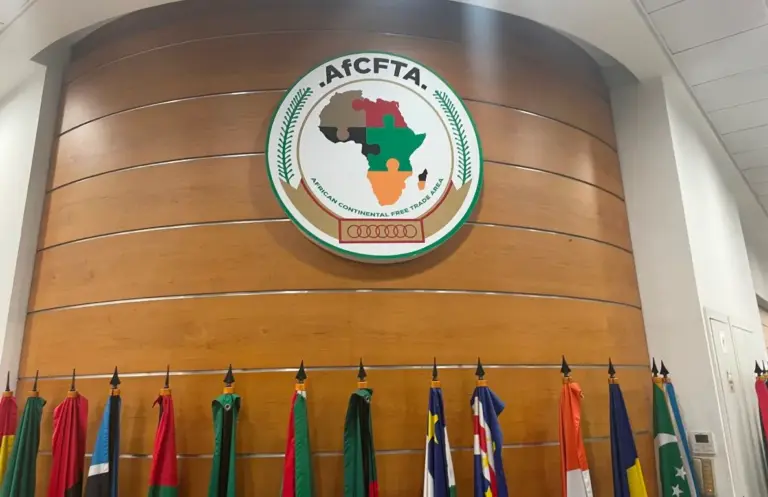The Nigerian government has unveiled a new strategic initiative aimed at integrating micro, small, and medium-sized enterprises (MSMEs) into the continental export market under the African Continental Free Trade Area (AfCFTA). This initiative comes through the establishment of the country’s first National Export Trading Company.
The project is being jointly implemented by the Federal Ministry of Industry, Trade and Investment in collaboration with the Nigeria Commodity Exchange, Afreximbank, and the Africa Trade and Distribution Company (ATDC). According to Minister of Trade Jumoke Oduwole, the new company is a “structural intervention” designed to streamline and scale up the export of Nigerian goods by addressing key operational gaps.
Speaking at the West Africa Economic Summit (WAES) in Abuja, Oduwole emphasized that the initiative is tailored to eliminate barriers that have long hampered Nigeria’s export capacity—particularly for small businesses—by providing crucial support services such as logistics, financing, market insights, and product aggregation.
The new trading company will function as the Nigerian arm of ATDC, an Afreximbank-backed pan-African enterprise created to expand Africa’s trade ecosystem under the AfCFTA framework. The focus is on transforming production capacities, improving traceability, and building regional value chains that meet global quality standards.
Bridging the Productivity and Export Gaps
Minister Oduwole underscored the potential impact of the project on Nigeria’s food system and non-oil export ambitions. “Nigeria is home to over 38 million smallholder farmers, responsible for 90% of our food production,” she said. “Yet, up to half of their output is lost before it reaches a buyer due to inefficiencies.”
She explained that the National Export Trading Company aims to correct this by investing in essential infrastructure such as storage, traceability systems, aggregation points, and structured access to regional and international markets. This, in turn, will enable farmers and MSMEs to scale their production and compete globally.
Driving Non-Oil Export Growth
The long-term vision for the trading company includes boosting non-oil exports, attracting investment, and facilitating more structured engagement between Nigerian producers and international buyers. Although specific financial commitments from the federal government were not disclosed, the project is expected to channel capital directly into productive capacities while unlocking long-term, inclusive growth.
“The goal is to align capital with capacity, connect grassroots production to global demand, and engineer platforms that promote scalable, sustainable trade,” Oduwole added.
Supporting Broader Trade Infrastructure
Beyond the export company, the Ministry of Trade reaffirmed its commitment to removing trade bottlenecks. It highlighted recent efforts, such as the activation of zero-duty regimes under AfCFTA and the establishment of a new air cargo trade corridor with 13 East and Southern African nations, developed in partnership with Uganda Air and the UNDP.
This corridor includes a dedicated market intelligence toolkit to help Nigerian exporters understand product demand and pricing in these regions. According to ministry officials, over $400 million in potential deals have already been tracked since the launch of this expanded corridor—an early indicator of growing investor confidence in Nigeria’s export strategy.
A Turning Point for Inclusive Trade
If effectively implemented, the National Export Trading Company could be a turning point in unlocking Nigeria’s export potential—particularly among underserved smallholder farmers and MSMEs. By resolving deep-seated issues in aggregation, financing, and global market access, the project positions Nigeria to lead not only in volume but in the quality and sustainability of African exports.

